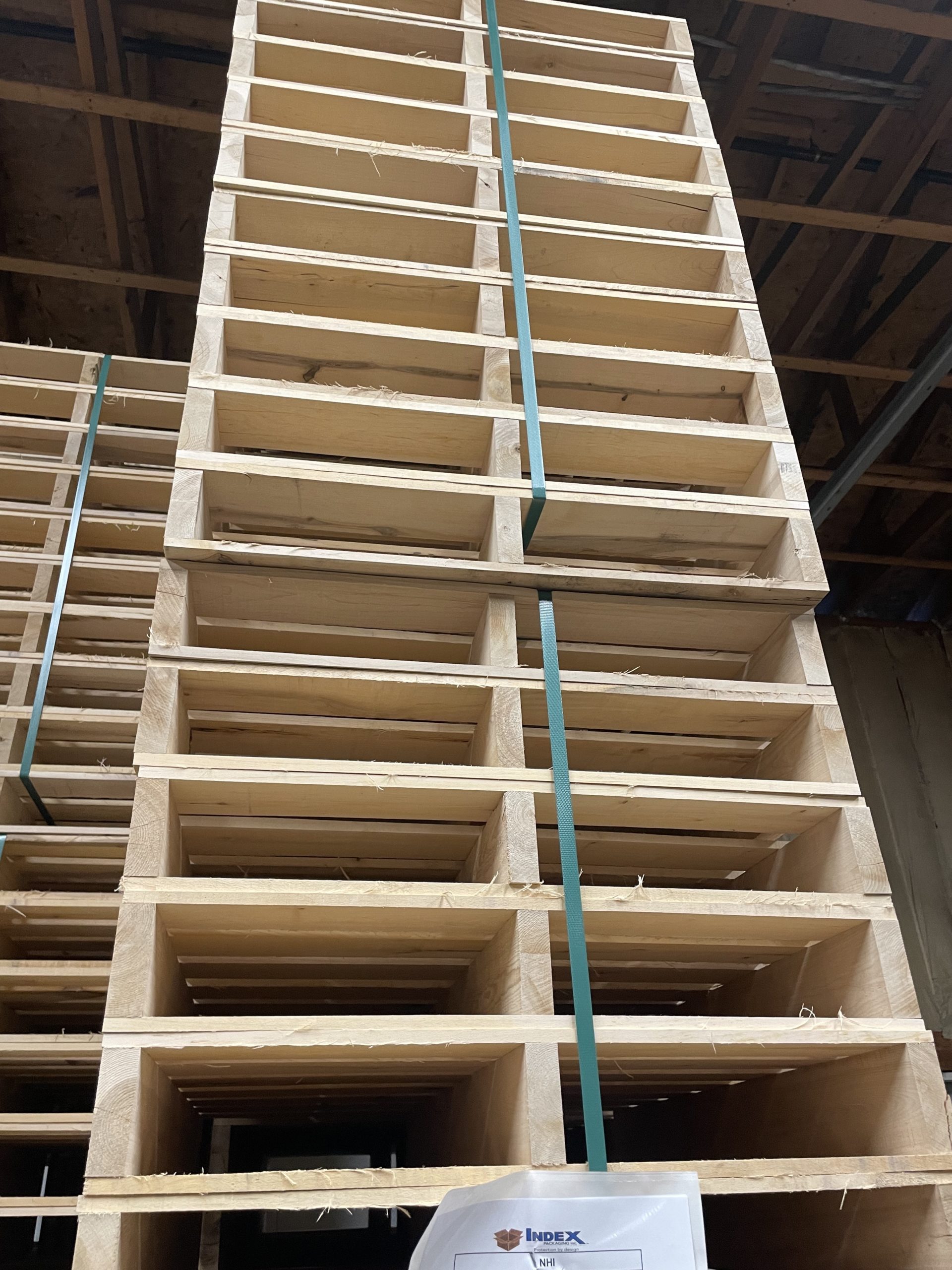In this quick-moving era, the efficient movement and storage of goods are vital to the success of every company. Among the various tools that facilitate this process, wooden pallets emerge as the unnoticed heroes for distribution. These fundamental yet impactful structures offer a perfect answer for transporting goods, enabling businesses to optimize their workflows and minimize costs. By optimizing the way products are handled, wooden pallets not only enhance logistics but also play a crucial role in creating a smooth operation within the supply chain.
The flexibility and resilience of wooden pallets make them an essential component in warehouses and distribution centers. They are capable of handling various types of products, including both heavy machines and fragile materials, ensuring that goods are transported safely and efficiently. Furthermore, their capability to be stacked and stored systematically optimizes storage capacity, allowing companies to make the most of their facilities. As we explore the myriad benefits of wooden pallets, it is apparent that they form the foundation of effective distribution and an important contributor to economic prosperity.
The Value of Wood Pallets in Logistics
Wood pallets have for many years been a foundation in the field of distribution due to their strength and adaptability. They are constructed to bear heavy loads and can be recycled multiple times, making them a economical choice for shipping and warehousing goods. Unlike other options, wood pallets offer a inherent strength that holds various types of load, from goods to manufacturing supplies. pallets in tulsa to be custom-made in different sizes and configurations also boosts their utility in varied settings.
Another major advantage of wooden pallets is their convenience of handling. Equipped with fork pockets, they can be easily moved by pallet jacks or pallet jacks, facilitating the loading and unloading processes. This effectiveness plays a critical role in reducing labor costs and minimizing the time required for distribution operations. Additionally, timber pallets can be piled, allowing for efficient use of vertical space in depots and shipping trucks, further improving storage efficiency.
The eco-friendly aspect of wood pallets should not be ignored. They are often made from sustainable resources and can be reused at the end of their operation period. This eco-consciousness aligns with the increasing emphasis on sustainable business practices. Companies that prioritize the use of timber pallets in their logistics strategies not only benefit from their functional benefits but also strengthen their commitment to sustainability and efficient resource use.
Categories of Wooden Pallet Systems
When it comes to wooden pallets, there are several standard types that address different transportation and storage needs. The most prevalent type is the stringer pallet, which is characterized by sturdy boards called crossbeams that run along the span of the pallet. This configuration facilitates easy entry by forklifts and pallet jacks, rendering it a preferred choice for storage facilities and shipping operations. Stringer pallets are adaptable, supporting a wide range of weights and sizes, which renders them ideal for multiple industries.
An alternate choice is the block pallet, made from solid blocks that offer greater stability and durability. Block pallets are commonly used for bulkier loads and can be accessed from all four sides, offering flexibility in handling. Their design includes a grid system, which spreads weight evenly and reduces damage to products during shipping. The enhanced strength of block pallets makes them ideal for long-term storage as well, as they can endure the rigors of stacking and handling.

In conclusion, there are also custom wooden pallets, tailored to meet the specific requirements of unique products or industries. These pallets can vary in size, shape, and construction method according to the load they will carry. Custom pallets are often employed in niche sectors like pharmaceuticals or electronics, where precision and protection are essential. By tailoring the design to the product, businesses can improve both transportation efficiency and storage options.
Eco-friendliness and Prospects of Wooden Pallets
The environmental viability of wooden pallets is increasingly recognized as crucial in modern supply chain practices. Sourced from renewable resources, wooden pallets can be produced from sustainably managed forests, reducing the carbon footprint associated with transportation. The natural decomposition of wood also has negligible environmental impact compared to plastic alternatives, which can take hundreds of years to break down. This intrinsic value makes wooden pallets an appealing choice for businesses looking to enhance their ecological responsibility.
As businesses strive to meet consumer demand for environmentally friendly practices, the future of wooden pallets looks promising. Advancements in the treatment and recycling of wooden pallets are being implemented to lengthen their lifespan and usability. Companies are adopting pallet pooling systems that allow for shared use among multiple businesses, reducing waste and the need for new pallets. This circular economy approach not only conserves resources but also additionally solidifies wooden pallets as an integral part of sustainable logistics.
Looking ahead, advancements in technology and manufacturing processes will improve the efficiency and sustainability of wooden pallets. The use of sustainable adhesives and finishes, along with enhanced designs for durability, will elevate wooden pallets as a top choice in the logistics industry. As sustainability becomes a central theme in global commerce, wooden pallets will continue to evolve, ensuring they remain at the forefront of efficient and responsible distribution solutions.
